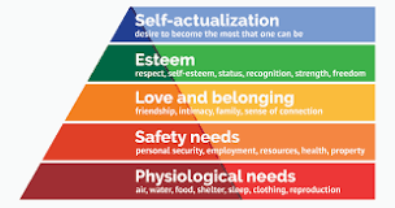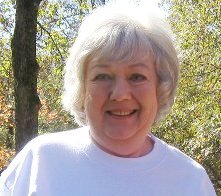Richer Than I Knew
Last month I wrote about realizing we were financially poor when I was growing up. Upon reflection, I decided that it was too one-sided and did not address the richness I also experienced in my youth.
Limitations in money were far outweighed by the opportunities
I had. Pineville was (and is) a small town. Although its culture has
changed remarkably over time, it was almost a paradise in my youth. It
was attractive, laid out around a central square with the courthouse as
the focal point. It was a market center and drew farmers and townspeople
to the many small businesses every Saturday. It was convenient. Because
it was platted in 1847 it was designed to be what is once again
desirable – a “walkable” community. Transportation was not required for
almost any purpose in either the 19th or early 20th centuries. We owned a
car because my dad needed one to go to work at the courthouse (he had
polio as a child and walked on crutches) and especially required one to
visit all the rural schools he was responsible for as County
Superintendent. There were 71 schools open when he was first elected to
office. In evaluating my origins, I was reminded of Maslow’s “Hierarchy
of Needs”. They were generously met although not in the most obvious
ways.

|
Meeting physiological needs was not easy except for clean air and
sleep. Everything else required at least some effort – water was drawn
from a well, growing or hunting much of the food we ate, making, buying,
or ordering clothing and the few items that were not available locally,
a shelter may have been plain, but it was adequate. Reproduction was
enthusiastically embraced. Large families were the norm.
Safety, at least personal security was a given. I could
wander all over the countryside without fear. I knew everybody and
everyone knew me. I remember being left briefly by my mom in the car
while she ran an errand. It was a warm day, the windows were rolled down
and of course, no one locked a car door in those days. I was about 4
years old. I discovered that I had a tick crawling on my leg and started
yelling for help. I don’t recall who came to my rescue, but a woman I
knew saw my distress and was helping me corral the tick when my mom came
back. A silly story, but it illustrates how a child knew that help
could be counted on in any circumstance. That confidence persists in me
today.
We also knew that we could find a job. It might not pay very
much, but there was work if you were willing. I had an advantage over
some when it came to health care. I think because both of my parents
barely survived the flu in 1918 and my dad’s experience with polio,
health, and dental care was a high priority in my family.
Love and belonging needs were met generously. Even though my
brother planned to trade me for a pony before I was born, he quickly
changed his mind and had my back all his life. When the doctor said I
could not walk to school to begin elementary school, he carried me on
his back to be sure I wouldn’t miss the first day. I was the baby of the
extended family – the youngest of 21 cousins, so I was spoiled with
attention and the knowledge that I could call on any family member to
help solve a problem. Love and belonging extended into the community. I
trusted adults to know me and assist me if I needed it.
Esteem was gained by success in many small things. I was in
4H and remember projects like demonstrating how to make gingerbread and
sewing that won ribbons. We had summer programs where I learned to make
baskets and ceramic pieces. Music lessons led to state competitions. I
loved school and read every book I could get my hands on.
I don’t have an example of self-actualization from my
childhood, but I do know that sometimes the most casual remark can have a
lasting effect. All these basic needs prepared me to go out into a
bigger world. When I was a senior in college, I took a test called the
Graduate Record Examination (GRE). I didn’t study for it. It was just a
small thing someone suggested I do – part of the routine of finishing up
my degree. In presenting the results to me, the administrator of the
test said casually, “You should get a Ph.D.” I never forgot what he
said. It took more than 20 years, but I did get a Ph.D. I was successful
because someone told me I could be. When I think about it, I am
reminded of the power of words and wonder about the many classmates who
were told “You aren’t college material.” It takes so little to quash a
dream or make a dream possible. I was one of the lucky ones.






No comments:
Post a Comment